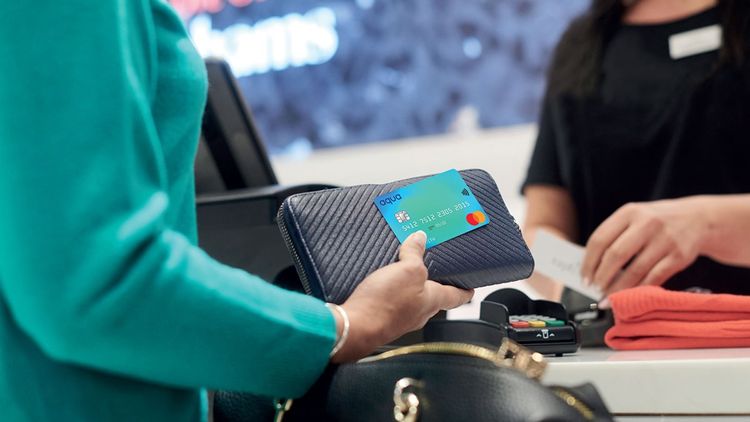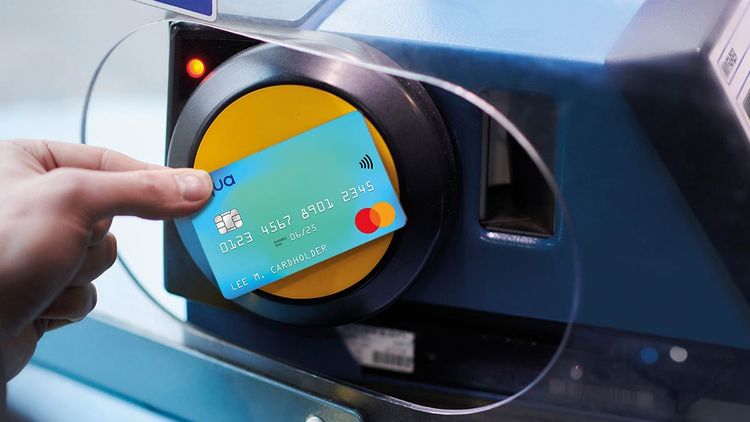In this article
How to get a credit card with bad credit
Learn how to choose and apply for a credit card when you have bad credit.

We know that looking for a credit card if you've got a bad credit history can feel frustrating and stressful, making it harder to get back on track. At Aqua, we want to help. In this guide, we'll take you through the process of choosing and applying for a credit card when you have a poor credit rating, helping you to avoid common missteps and find the right card for your needs.
Is a credit card right for you?
This might seem like an odd place to start but it’s important to make sure that a credit card is right for you. A credit card can be a great way to build your credit score, but if you’re going to have one you need to be sure that you can do three essential things:
- Make payments on time each month
- Make at least the minimum payment
- Stay within your credit limit
If you can’t be sure of making at least the minimum repayment each month, for example, it might be better for you to look at other options and see if there’s an alternative that better suits your needs.
If a credit card is right for you, then it’s time to start narrowing down your options.
Work out which card is right for you
If you have a bad credit score, you’re likely to have limited options when it comes to credit cards. That means it’s even more important to take the time to work out which is the best card for you.
It’s important to think about how you’re going to use your card and what extra features might suit you best. All credit cards can help you manage cash flow over the course of a month, so the first thing to look at is the representative APR to get an idea of which card is likely to offer the best rate of interest.
Next, look at the extra features the card offers – these usually fall into two categories:
- Added extras, e.g. cashback
- Card features, e.g. not charging fees when you spend abroad
Using the above examples, if you’re planning on going abroad with the card, the card that doesn’t charge you to spend abroad might suit you best. However, if you’re just planning on using the card in the UK, the card with cashback might suit you better.
Find out more about the different types of credit card available in our guide.
Don't submit loads of applications
If you have a bad credit history and are worried about not getting the credit you need, it can be tempting to apply for several credit cards and see which applications are successful.
Getting on the road to good credit is as much about knowing what not to do as it is doing the right thing. We want to help you get on the road safely, so let us explain.
Every time you apply for a credit product, it’s logged on your credit report. Applying for lots of credit cards in a short space of time can make it look like you’re struggling to get credit and appear negatively on your records – even if you’re successful.
Worse, a series of unsuccessful applications will likely have a negative effect on your credit rating, reducing your chances of being successful in future applications. If you currently have a bad credit rating, logging up lots of unsuccessful applications is the last thing you should do.
Check your eligibility before applying?
So, what should you do? Simply look for a soft-check eligibility checker, such as our own SafeCheck. A soft check will show your likelihood of being accepted without affecting your credit rating. You’ll be able to see the check on your credit report, but other lenders won’t – and it won’t impact your credit score.
If the soft check says you’re not likely to be accepted, it’s best not to apply. However, if the soft check says that you’re likely to be accepted, then you can think about applying.
It’s important to remember that a soft check isn’t a full credit check, so you’ll still go through a full credit check when you apply and the results could vary. This is particularly common when it comes to the APR and credit limit you’re offered.
How credit card applications work
Credit card applications can seem like a bit of a mystery. What actually happens when you apply? Well, it’s a surprisingly straightforward process:
- The lender runs a full credit check to make sure your details are correct and you can afford the credit.
- If you’re successful, the lender uses the results of the credit check to calculate your APR and your credit limit .
- The provider will send you your card in the post with details of your credit limit and APR. You should have a chance to decline the card offer at this point if you’re not happy with either the credit limit or APR offered.
Once you've got your card
Once the card is in your pocket, it’s yours to use although it may need to be activated first. Here are a few pointers to keep on track and help your credit score grow:
- Stay within your credit limit. Using more than 30% of your credit limit could have an impact on your credit score. If you stay on track, your card provider may be more likely to increase your credit limit over time.
- Make sure you pay at least the minimum amount on time each month – and pay more if you can afford it.
- Budget your incomings and outgoings, factoring in any credit card payments and interest.
If you keep doing these simple things, you’ll be well on the way to a good credit rating.
Failure to make payments on time or to stay within your credit limit means that you will pay additional charges and may make obtaining credit in the future more expensive and difficult.
Contributors


You might also like
Slide 1 of 3
The cost of bad credit
Learn more about some of the most common challenges of bad credit and what you can do about them.

How to fix bad credit
In this guide you’ll find out how to improve bad credit and how quickly you can do it.

How credit card payments work
Learn how credit card payments work, how and why credit card charges are applied and how to manage payments.
The smart way to build better credit
Aqua is the credit card that gives you the power to improve your credit score
